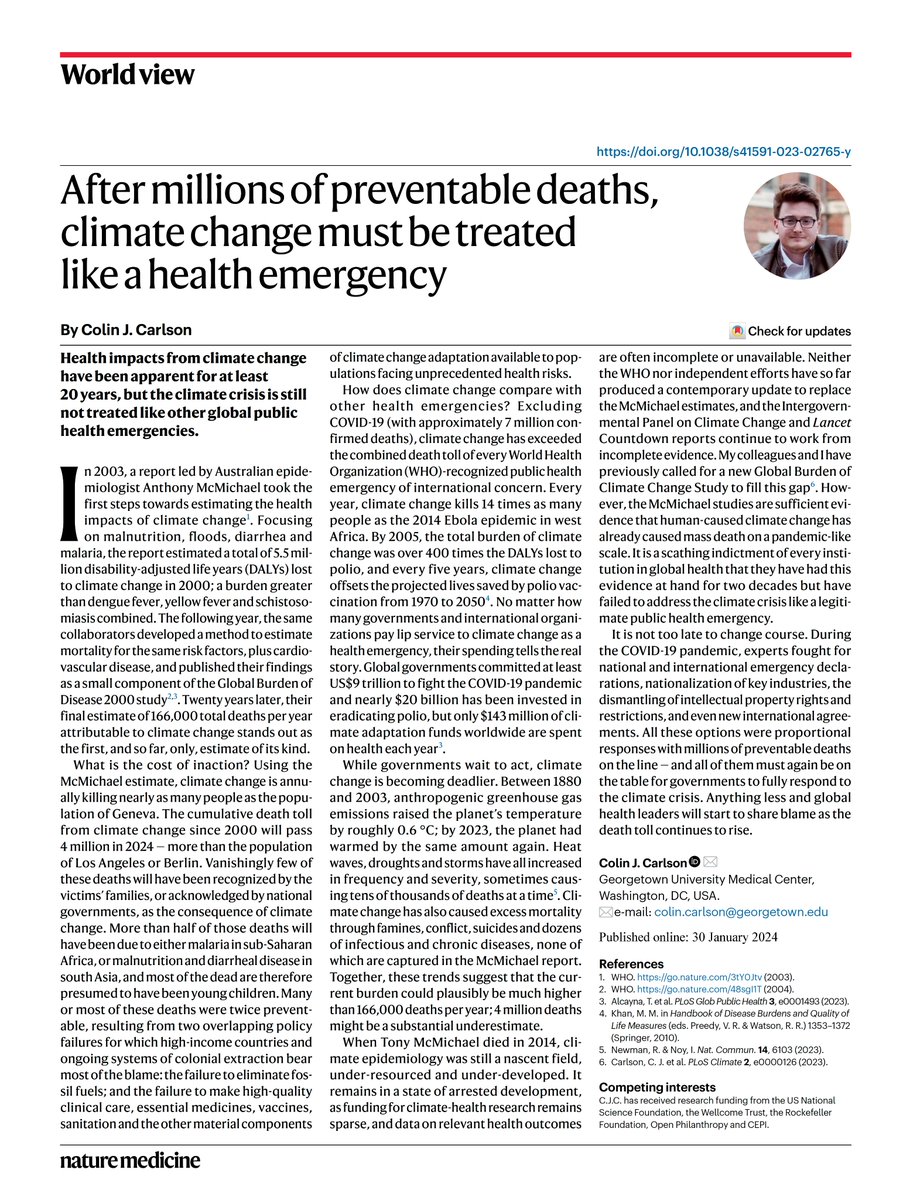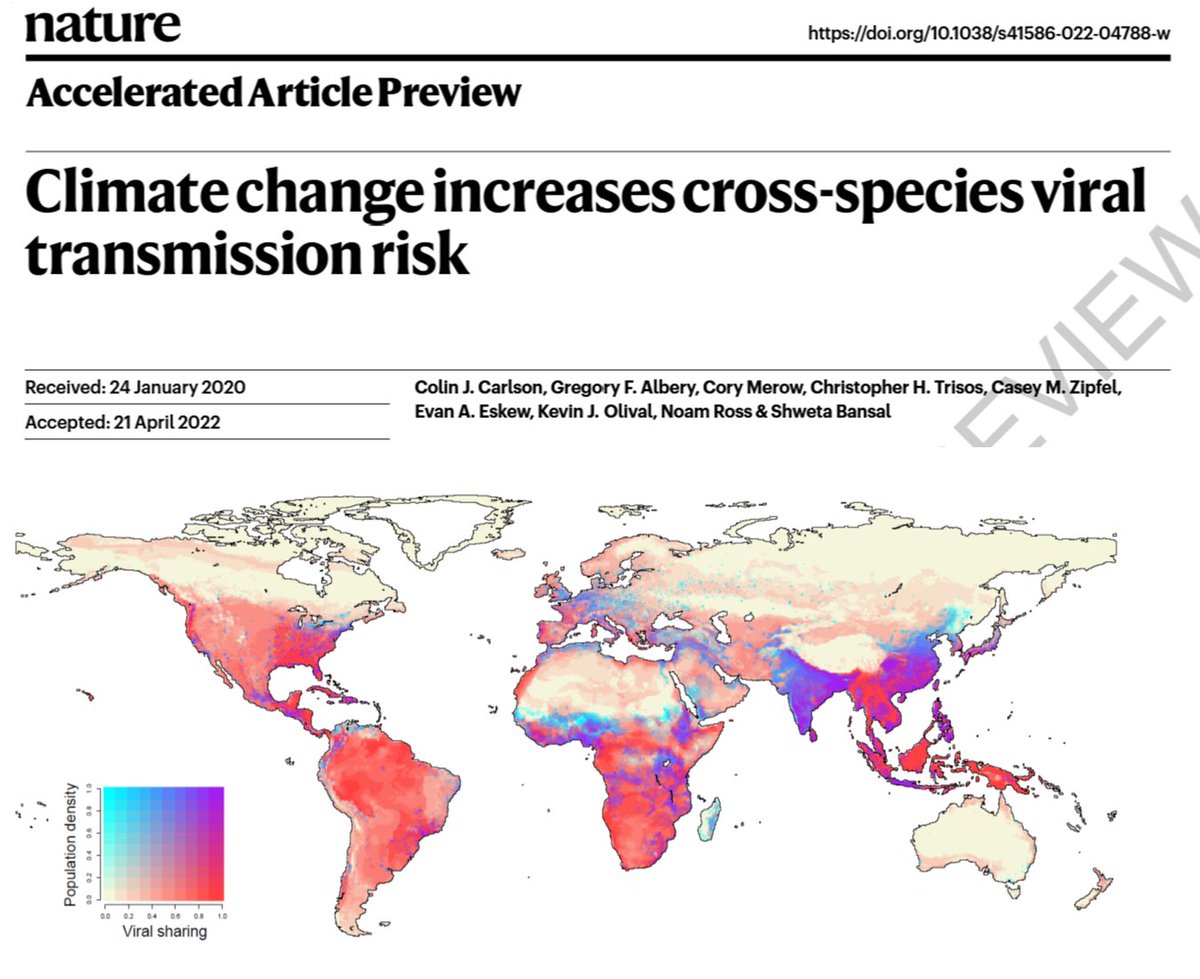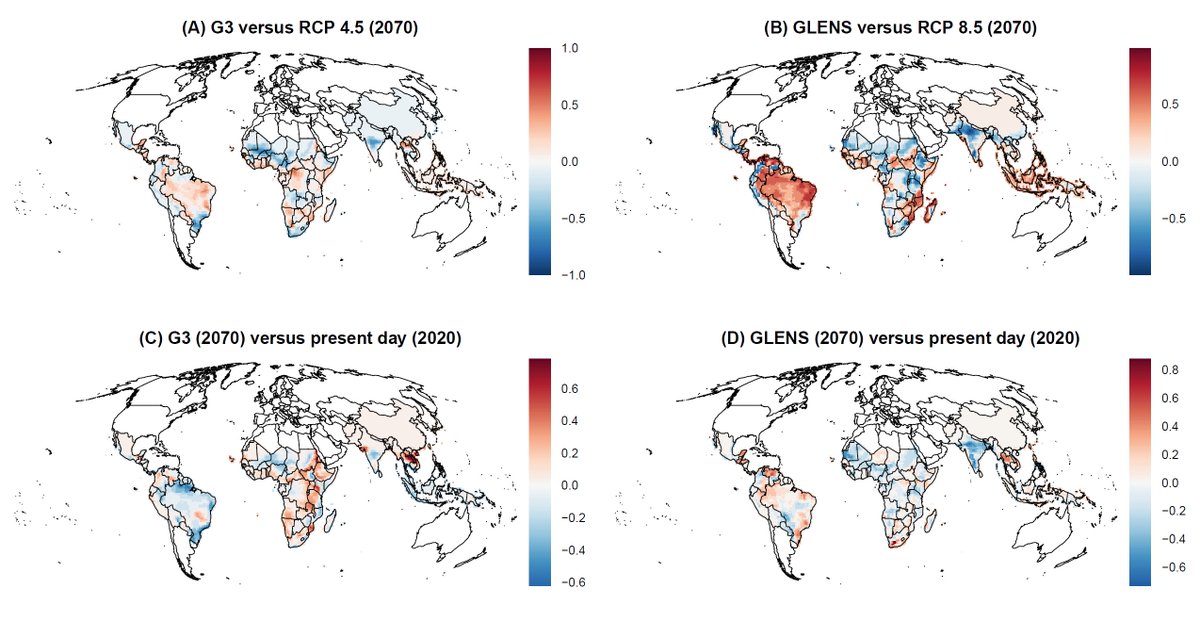
Climate epidemiologist at @YaleEMD, PI of @viralemergence, working to save what can be saved, so as to open up some kind of future. Krakoa is for all mutants.
How to get URL link on X (Twitter) App


 Cutting greenhouse gasses isn't enough anymore. National governments have to meet the challenge of climate and health with substantive commitments: access to essential medicines; access to high-quality care; access to food and clean water. And @WHO needs to give them a blueprint.
Cutting greenhouse gasses isn't enough anymore. National governments have to meet the challenge of climate and health with substantive commitments: access to essential medicines; access to high-quality care; access to food and clean water. And @WHO needs to give them a blueprint.

https://twitter.com/schafer_karl/status/1581696441763786752It's especially hard not to go back to this idea after watching @dimension20show's A Starstruck Odyssey season, which I think plays with some of the same themes of capitalist dystopia that would make this a fun exercise while also keeping it light, fun, and meaningful

https://twitter.com/BenjaminRamm/status/1581585963868119042The geology, hydrology, ecology of this is 99% fabricated in service of an extremely real and consequential politic that imagines a second great era of colonialism. "Doomerism" isn't having a tired moment reading the newspaper: it's this specific accelerationist imaginary

https://twitter.com/robinsonmeyer/status/1552493263348695045

 What you should know:
What you should know:

https://twitter.com/TwixScherer/status/1516818293373427721Basic info you need to know: there's a hump-shaped curve that connects temperature to the rate, or R0 (you might remember this from the pandemic!), of disease transmission for most vector-borne things, including malaria.


 There are winners and losers, not just relative to possible warmer futures (roughly +3° [L] and +5°C [R] relative to pre-industrial, per AR6) but also relative to the present. A world with climate change and geoengineering isn't the same as a world without climate change. (2/4)
There are winners and losers, not just relative to possible warmer futures (roughly +3° [L] and +5°C [R] relative to pre-industrial, per AR6) but also relative to the present. A world with climate change and geoengineering isn't the same as a world without climate change. (2/4) 


 When I say information, I really do mean information. There's a lot of important messages in this report. They're also not really being served up by any central comms team in a clear way. Going through, finding them, sharing that info is paramount right now.
When I say information, I really do mean information. There's a lot of important messages in this report. They're also not really being served up by any central comms team in a clear way. Going through, finding them, sharing that info is paramount right now.

https://twitter.com/viralemergence/status/1499016931453677575We don't normally announce data projects so early in development, but over the last few months, we've started to feel like all roads lead to the same place: this is the step disease ecology needs to take if we want to answer the big questions. It's also utterly doable.

https://twitter.com/robinsonmeyer/status/1498865401832382466Tonight: some brief mentions of energy transition; next to nothing on impacts or the urgency of the problem. (@robinsonmeyer is right in above thread: this is *how* Joe Biden talks about climate change.)



https://twitter.com/BlaneHarvey/status/1498679061702393866It's hard to contextualize these kinds of numbers sometimes, but $1-10m is easily the size of, say, most of the say 2-5 year research grants you apply for as a scientist. One grant's worth.
